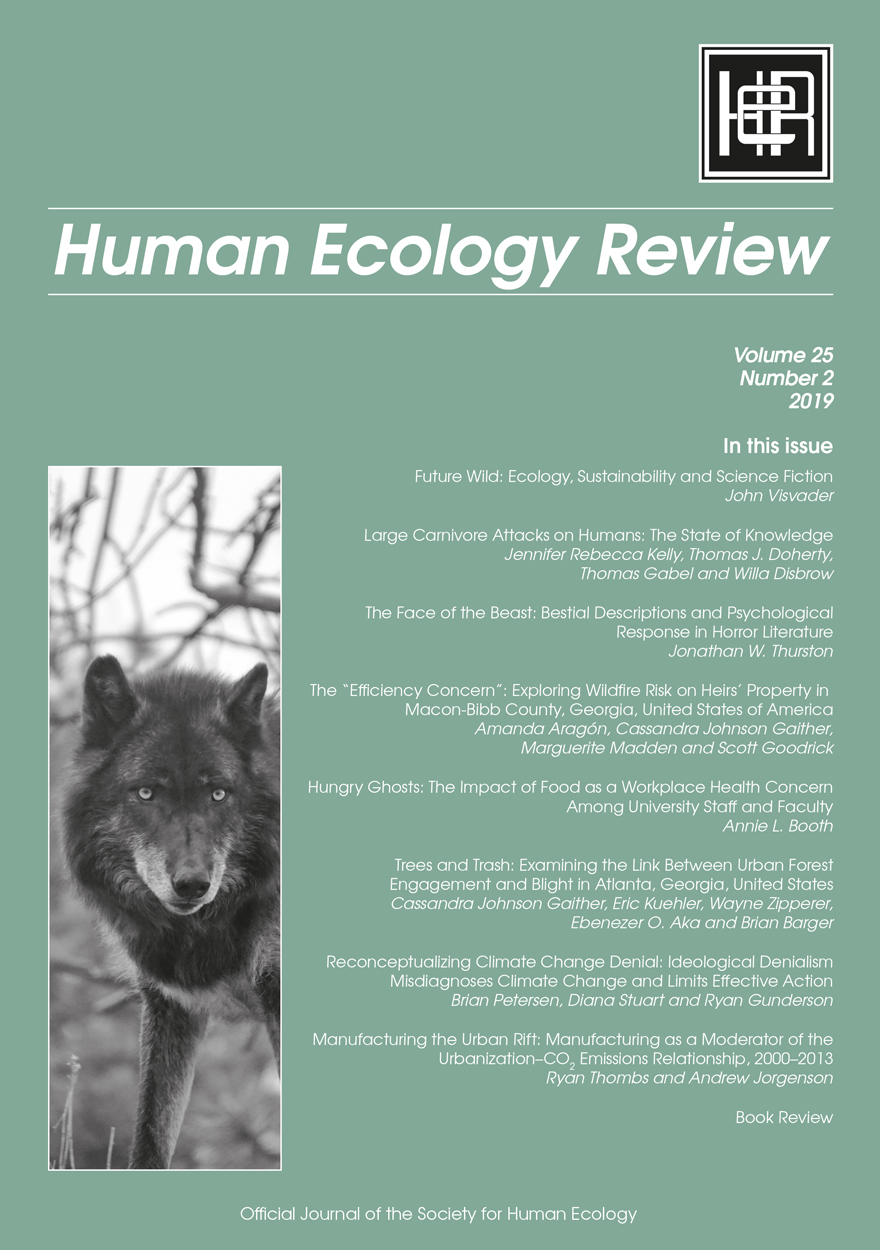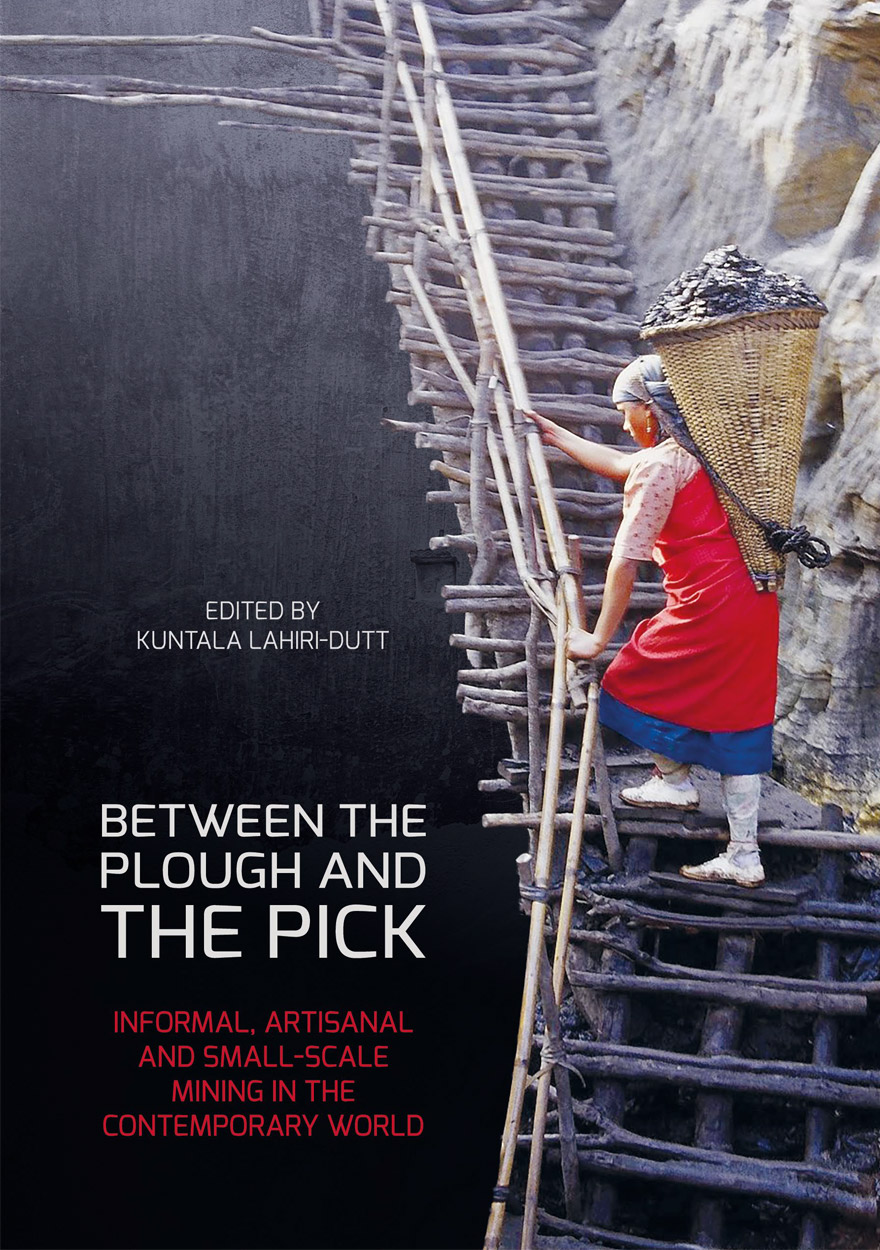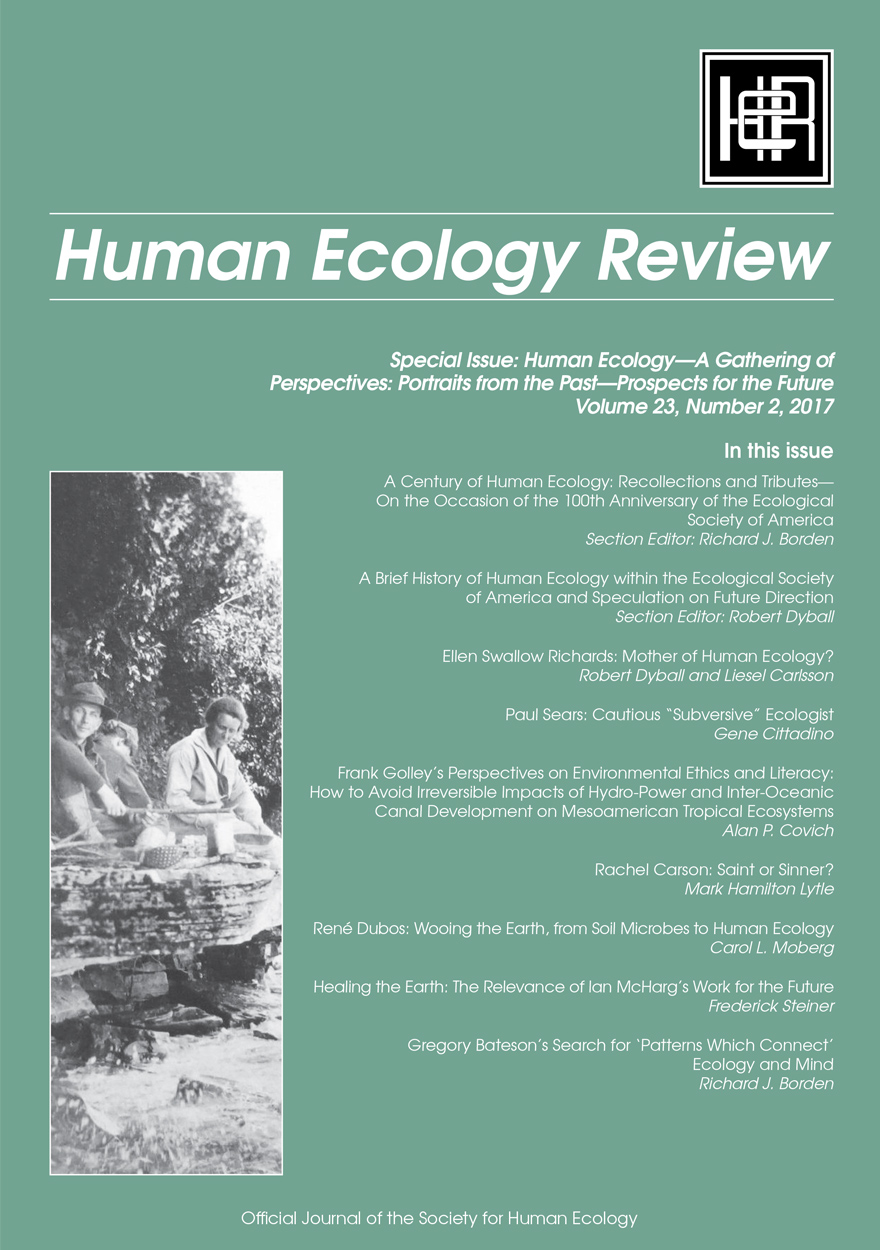Search titles
Displaying results 21 to 30 of 97.

Cooperative Evolution »
Reclaiming Darwin’s Vision
Authored by: Christopher Bryant, Valerie A. Brown
Publication date: March 2021
Cooperative Evolution offers a fresh account of evolution consistent with Charles Darwin’s own account of a cooperative, inter-connected, buzzing and ever-changing world. Told in accessible language, treating evolutionary change as a cooperative enterprise brings some surprising shifts from the traditional emphasis on the dominance of competition.
The book covers many evolutionary changes reconsidered as cooperation. These include the cooperative origins of life, evolution as a spiral rather than a ladder or tree, humans as a part of natural systems rather than the purpose, relationships between natural and social change, and the role of the individual in adaptive radiation onto new ground. The story concludes with a projection of human evolution from the past into the future.
‘Environmental studies courses have needed a book like Cooperative Evolution for a long time. It is a boon for those teaching the complexity of the evolutionary story.’
— Dr John A. Harris, BSc(Hons) MSc PhD, School of Environmental Science, University of Canberra
‘As a regenerative, holistic-thinking farmer I daily witness the results of cooperative evolution as the seasons unfold. A pleasure to read, Cooperative Evolution gives entry to recent thinking on evolutionary processes.’
— David Marsh, MSA, ‘Allendale’, Boorowa, New South Wales, 2018 National Individual Landcarer Award recipient
‘This book is an engaging new look at ideas about evolution as we know it today. In the hands of two eminent biologists, it presents an approachable yet challenging argument. I heartily recommend it.’
— Emeritus Professor Sue Stocklmayer AO, BSc MSc PhD, Centre for the Public Awareness of Science, The Australian National University

Meaning, Life and Culture »
In conversation with Anna Wierzbicka
Edited by: Helen Bromhead, Zhengdao Ye
Publication date: December 2020
This book is dedicated to Anna Wierzbicka, one of the most influential and innovative linguists of her generation. Her work spans a number of disciplines, including anthropology, cultural psychology, cognitive science, philosophy and religious studies, as well as her home base of linguistics. She is best known for the Natural Semantic Metalanguage (NSM) approach to meaning—a versatile tool for exploring ‘big questions’ concerning the diversity and universals of people’s experience in the world.
In this volume, Anna Wierzbicka’s former students, old and current colleagues, ‘kindred spirits’ and ‘sparring partners’ engage with her ideas and diverse body of work. These authors cover topics from the grammar of action verbs to cross-cultural pragmatics, and over 30 languages from around the world are represented.
The chapters in Part 1 focus on the NSM approach and cover four themes: lexico-grammatical semantics, cultural keywords, semantics of nouns, and emotion. In Part 2, the contributors connect with a meaning-based approach from their own intellectual perspectives, including syntax, anthropology, cognitive linguistics and sociolinguistics.
The deep humanistic perspective, wide-ranging themes and interdisciplinary nature of Wierzbicka’s research are reflected in the contributions. The common thread running through all chapters is the primacy of meaning to the understanding of language and culture.

Gouvernance et gestion des aires protégées »
Publication date: September 2020
Le livre “Gouvernance et gestion des aires protégées” est une compilation de textes originaux, d'études de cas et d'exemples du monde entier. Il s’appuie sur une vaste littérature et sur les connaissances et l'expérience de nombreux acteurs des aires protégées. Ces derniers y présentent les connaissances actuelles et les idées innovantes des diverses branches de la gouvernance et de la gestion des aires protégées. Ce livre constitue un investissement dans les compétences et les connaissances des hommes et, par conséquent, dans la gouvernance et la gestion des aires protégées dont ces hommes sont responsables.
Le succès mondial du concept d'aire protégée réside dans la dualité de sa vision : protéger, sur le long terme, à la fois le patrimoine naturel et le patrimoine. Les organisations telles que l'Union internationale pour la conservation de la nature sont une force unificatrice à cet égard. Cependant, les aires protégées restent un phénomène sociopolitique et la façon dont elles sont comprises, gérées et gouvernée par les États peut toujours être le sujet de débats et de contestations. Ainsi, ce livre cherche à éclairer, éduquer et surtout à inciter les lecteurs à réfléchir à l’avenir, au passé et au présent des aires protégées.
Cent soixante neuf auteurs ont participé à la rédaction de ce livre qui porte sur tous les aspects de la gouvernance et de la gestion des aires protégées. Ils ont ainsi créé un outil de formation et de renforcement des capacités pour les agents de terrain et les gestionnaires des aires protégées ainsi que les décideurs de plus haut niveau.
La traduction de l'ouvrage est en cours et les chapitres traduits seront publiés progressivement, nous vous invitons donc à consulter le site régulièrement.

‘We Are All Here to Stay’ »
Citizenship, Sovereignty and the UN Declaration on the Rights of Indigenous Peoples
Authored by: Dominic O’Sullivan
Publication date: September 2020
In 2007, 144 UN member states voted to adopt a Declaration on the Rights of Indigenous Peoples. Australia, Canada, New Zealand and the US were the only members to vote against it. Each eventually changed its position. This book explains why and examines what the Declaration could mean for sovereignty, citizenship and democracy in liberal societies such as these. It takes Canadian Chief Justice Lamer’s remark that ‘we are all here to stay’ to mean that indigenous peoples are ‘here to stay’ as indigenous.
The book examines indigenous and state critiques of the Declaration but argues that, ultimately, it is an instrument of significant transformative potential showing how state sovereignty need not be a power that is exercised over and above indigenous peoples. Nor is it reasonably a power that displaces indigenous nations’ authority over their own affairs. The Declaration shows how and why, and this book argues that in doing so, it supports more inclusive ways of thinking about how citizenship and democracy may work better. The book draws on the Declaration to imagine what non-colonial political relationships could look like in liberal societies.

Communicating Science »
A Global Perspective
Edited by: Toss Gascoigne, Bernard Schiele, Joan Leach, Michelle Riedlinger, Bruce V. Lewenstein, Luisa Massarani, Peter Broks
Publication date: September 2020
Modern science communication has emerged in the twentieth century as a field of study, a body of practice and a profession—and it is a practice with deep historical roots. We have seen the birth of interactive science centres, the first university actions in teaching and conducting research, and a sharp growth in employment of science communicators.
This collection charts the emergence of modern science communication across the world. This is the first volume to map investment around the globe in science centres, university courses and research, publications and conferences as well as tell the national stories of science communication.
How did it all begin? How has development varied from one country to another? What motivated governments, institutions and people to see science communication as an answer to questions of the social place of science?
Communicating Science describes the pathways followed by 39 different countries. All continents and many cultures are represented. For some countries, this is the first time that their science communication story has been told.

Human Ecology Review: Volume 25, Number 2 »
Publication date: December 2019
Human Ecology Review is a semi-annual journal that publishes peer-reviewed interdisciplinary research on all aspects of human–environment interactions (Research in Human Ecology). The journal also publishes essays, discussion papers, dialogue, and commentary on special topics relevant to human ecology (Human Ecology Forum), book reviews (Contemporary Human Ecology), and letters, announcements, and other items of interest (Human Ecology Bulletin). Human Ecology Review also publishes an occasional paper series in the Philosophy of Human Ecology and Social–Environmental Sustainability.
Download for free
Not available for purchase

Gobernanza y gestión de áreas protegidas »
Publication date: August 2019
Gobernanza y gestión de áreas protegidas presenta un compendio de texto original, estudios de caso y ejemplos de todo el mundo, a partir de la literatura, el conocimiento y la experiencia de las personas involucradas en áreas protegidas. El libro sintetiza el conocimiento actual y el pensamiento de vanguardia de las diversas ramas de la práctica y el aprendizaje relevantes para la gestión y el gobierno de estas zonas. Se pretende que sea una inversión en las habilidades y competencias de las personas responsables de tal tarea y, en consecuencia, la gobernanza y la gestión efectivas, ahora y en el futuro.
El éxito global del concepto de área protegida radica en su visión compartida de proteger el patrimonio natural y cultural a largo plazo, y organizaciones como la Unión Internacional para la Conservación de la Naturaleza son una fuerza unificadora en este sentido. No obstante, las áreas protegidas son un fenómeno sociopolítico y las formas en que las naciones las entienden, las gobiernan y las manejan siempre están abiertas a disputas y debates. El libro pretende ilustrar, educar y, sobre todo, desafiar a los lectores a pensar profundamente sobre las áreas protegidas, su futuro y su pasado, así como su presente.
El libro ha sido compilado por 169 autores y trata todos los aspectos de la gobernanza y gestión de áreas protegidas. Proporciona información para apoyar la capacitación en desarrollo de capacidades de los oficiales de campo, gerentes a cargo y gerentes de nivel ejecutivo.

‘True Biographies of Nations?’ »
The Cultural Journeys of Dictionaries of National Biography
Edited by: Karen Fox
Publication date: April 2019
Dictionaries of national biography are a long-established and significant genre of biographical and historical writing, existing in many forms across the globe. This book brings together practitioners from around the English‑speaking world to reflect on national biographical dictionary projects’ recent cultural journeys, and the challenges presented to them by such developments as the transition to a digital environment, a new alertness to the need to represent diversity, and the rise of transnationalism. Exploring their paths forward, the chapters of this book collectively make a powerful argument for the continued value and importance of large‑scale collaborative biographical dictionary research.

Between the Plough and the Pick »
Informal, artisanal and small-scale mining in the contemporary world
Edited by: Kuntala Lahiri-Dutt
Publication date: March 2018
Between the Plough and the Pick deepens our understanding of informal, artisanal and small-scale mining, popularly known as ASM. The book engages with wider scholarly conceptualisations of contemporary global social, agrarian and political changes, whilst underlining the roles that local social‑political-historical contexts play in shaping mineral extractive processes and practices. It shows that the people who are engaged in these mining practices are often the poorest and most exploited labourers—erstwhile peasants caught in the vortex of global change, who perform the most insecure and dangerous tasks. Although these people are located at the margins of mainstream economic life, they collectively produce enormous amounts of diverse material commodities and find a livelihood (and often a pathway out of oppressive poverty).
The contributions to this book bring these people to the forefront of debates on resource politics. The contributors are international scholars and practitioners who explore the complexities in the histories, in labour and production practices, the forces driving such mining, the creative agency and capacities of these miners, as well as the human and environmental costs of ASM. They show how these informal, artisanal and small‑scale miners are inextricably engaged with, or bound to, global commodity values, are intimately involved in the production of new extractive territories and rural economies, and how their labour reshapes agrarian communities and landscapes of resource access and control.
This book drives home the understanding that, collectively, this social and economic milieu redefines our conceptualisation of resource politics, mineral‑dependent livelihoods, extractive geographies of resources and commodities, and their multiple meanings.

Human Ecology Review: Volume 23, Number 2 »
Special Issue: Human Ecology—A Gathering of Perspectives: Portraits from the Past—Prospects for the Future
Publication date: December 2017
Human Ecology Review is a semi-annual journal that publishes peer-reviewed interdisciplinary research on all aspects of human–environment interactions (Research in Human Ecology). The journal also publishes essays, discussion papers, dialogue, and commentary on special topics relevant to human ecology (Human Ecology Forum), book reviews (Contemporary Human Ecology), and letters, announcements, and other items of interest (Human Ecology Bulletin). Human Ecology Review also publishes an occasional paper series in the Philosophy of Human Ecology and Social–Environmental Sustainability.
Download for free
Not available for purchase



